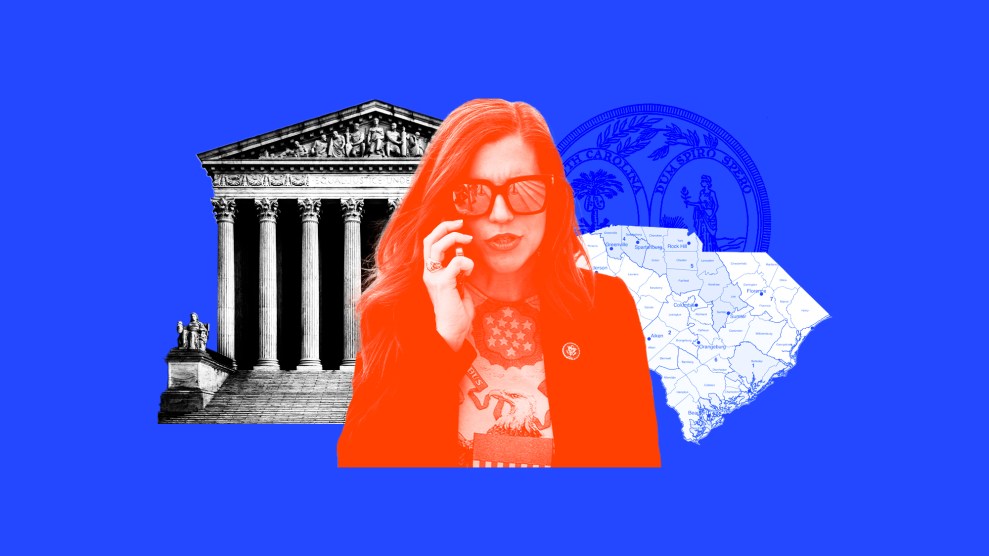
Nicolás Ortega
As any schoolkid might tell you, US elections are based on a bedrock principle: one person, one vote. Simple as that. Each vote carries the same weight. Yet for much of the country’s history, that hasn’t been the case. At various points, whole classes of people were shut out of voting: enslaved Black Americans, Native Americans, and poor white people. The first time women had the right to vote was in 1919. This week’s episode of Reveal is about a current version of this very old problem.
For this show, host Al Letson does a deep dive with Mother Jones national voting rights correspondent Ari Berman about his new book, Minority Rule: The Right-Wing Attack on the Will of the People—and the Fight to Resist It.
They first discuss America’s early years and examine how the political institutions created by the Founding Fathers were meant to constrain democracy. This system is still alive in the modern era, Berman says, through institutions like the Electoral College and the US Senate, which were designed as checks against the power of the majority. What’s more, Berman argues that the Supreme Court is a product of these two skewed institutions. Then there are newer tactics—like voter suppression and gerrymandering—that are layered on top of this anti-democratic foundation to entrench the power of a conservative white minority.
Next, they trace the rise of conservative firebrand Pat Buchanan and how he opened the door for Donald Trump. Buchanan made white Republicans fear becoming a racial minority. And he opposed the Voting Rights Act, which struck down obstacles to voting like poll taxes and literacy tests that had been used to keep people of color from the polls. Buchanan never came close to winning the presidency, but he transformed white anxiety into an organizing principle that has become a centerpiece of much of today’s Republican Party.
Finally, the show follows successful efforts by citizen activists in Michigan to end political gerrymandering and reinforce the democratic principle of one person, one vote. Berman argues that this state-based organizing should be a national model for democratic reform.














